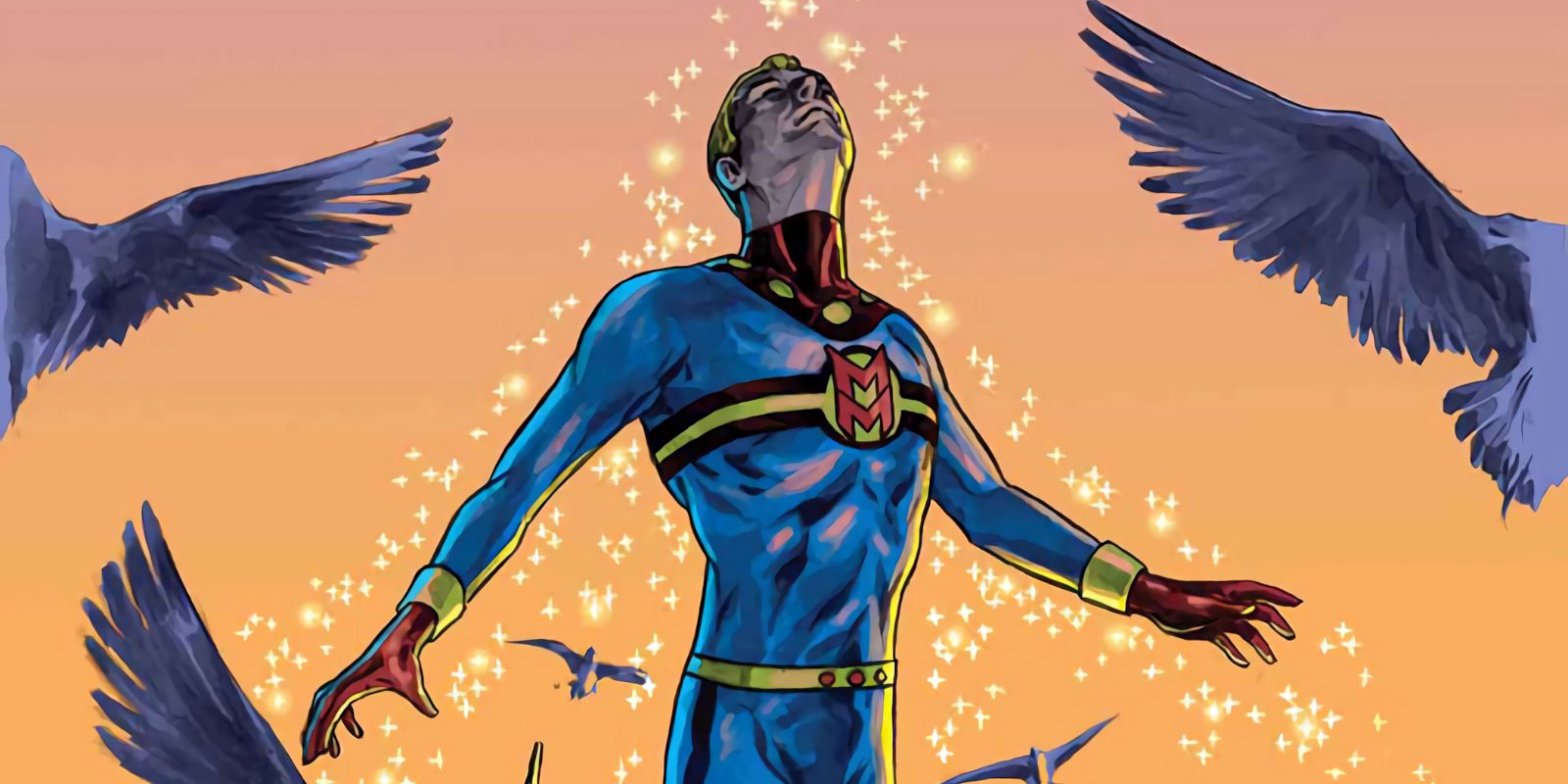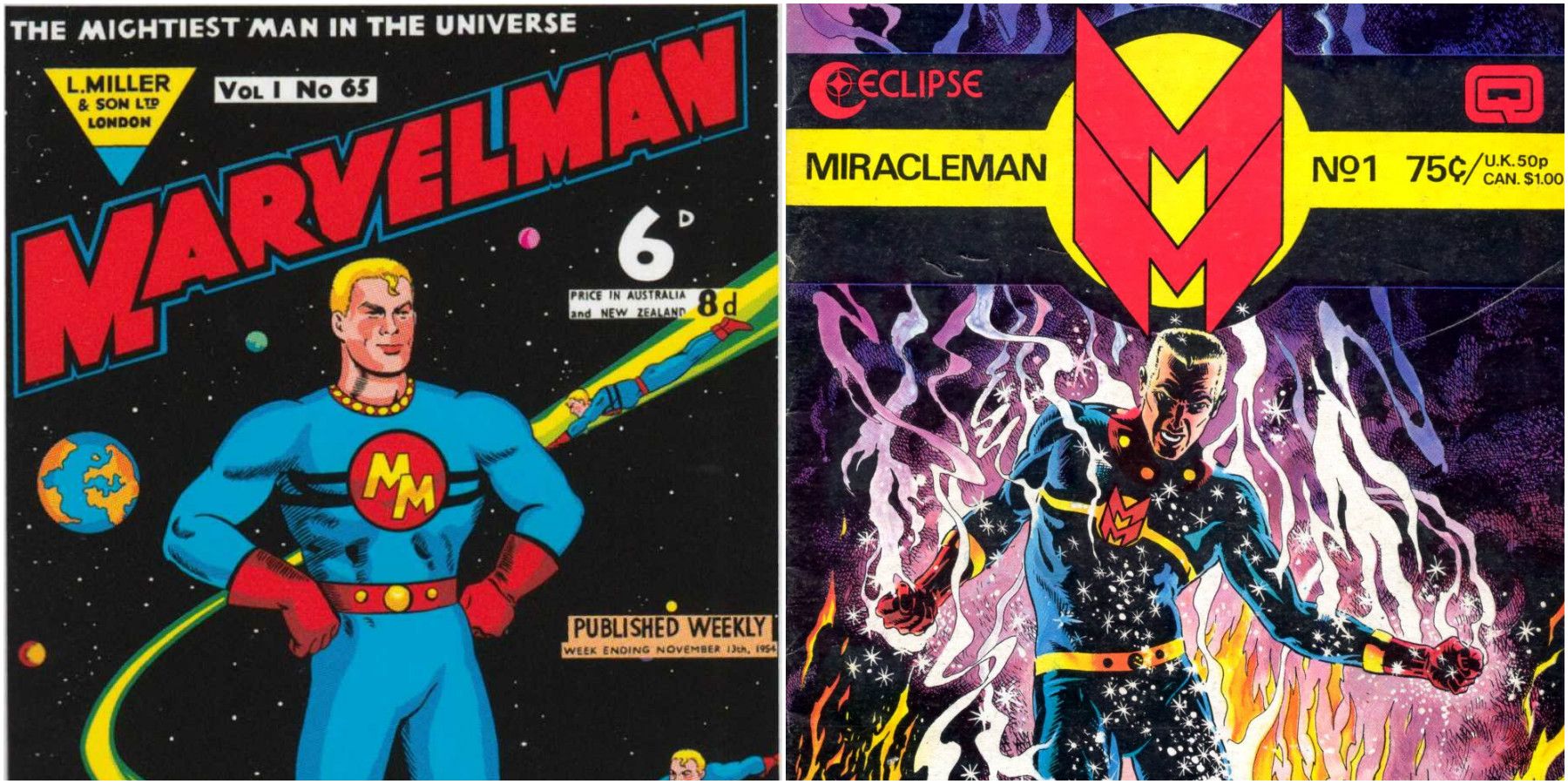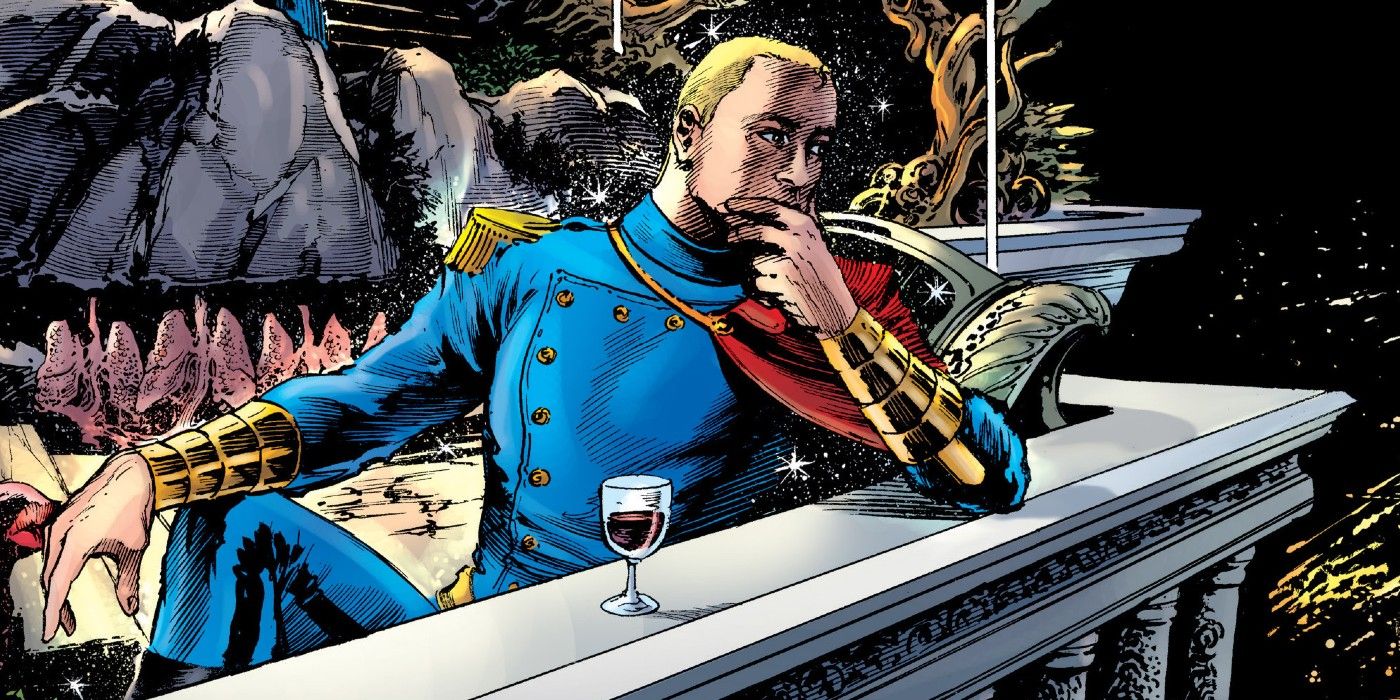For a brief period of time, the hero know as Captain Marvel was so popular, he even outsold Superman. Though the primary audience for Captain Marvel was young Americans, the hero's cry of the magical word "Shazam!" was heard across the Atlantic in the United Kingdom -- leading the British to develop their own solution when the rights to the character came to an end.
In England, writer Mick Anglo created an English version of the character. Known as Marvelman, the character was Captain Marvel in all but name, with near-identical powers, origins, and secret identity. The black and white adventures of Marvelman were adored by readers for a period of time before fading into obscurity. Twenty years later, writer Alan Moore revived the character... but took him in a completely different direction.
Far from the pure-hearted kid Mick Anglo had created, Moore's Marvelman (later renamed Miracleman to avoid issues with Marvel Comics) ended up conquering his Earth. Beginning in 1982, the Miracleman reboot introduced readers to a middle-aged Miracleman who had lost his powers and memories of being a hero. His life as Michael Moran is shattered when terrorists hold him hostage leading him to accidentally say the phrase which transforms him into his alter ego. Despite regaining his powers and memories, life only becomes more difficult for Michael.
As Miracleman becomes an independent personality, the distance between him and his wife Liz grows. After defeating his villainous former sidekick, Kid Marvelman, he learns the truth of his origins. All of the original adventures from the fifties and sixties that he thought he had gone on were memories implanted by his arch-nemesis and creator, Dr. Gargunza.
When Dr.Gargunza kidnaps Liz, Miracleman doesn't hesitate to kill the man who made him. The death of Gargunza ends up separating Miracleman and Michael even further until the hero vows to never become Michael again.
Eventually, Miracleman discovers his female counterpart Lady Miracleman. The two are forced to do battle with a revitalized Kid Miracleman who completely destroys London. Though Miracleman wins in the end, the trauma of killing his former friend and seeing the carnage he had inflicted upon the world nearly breaks him. Together with Lady Miracleman and a handful of other superpowered beings, he uses the chaos of Kid Miracleman's rampage as an excuse to conquer the world. His absolute rule leads to what appears like a utopia but leaves no room for humanity to determine their own destiny. Moore's run ends with Liz turning down an offer to join Miracleman in ruling Earth.
After Moore left the book, writing duties went to Neil Gaiman before its publisher, Eclipse Comics, filed for bankruptcy. Gaiman's run infamously ended on a cliffhanger that has not been resolved to this day. After Eclipse filed for bankruptcy, the character existed in a legal gray area. It was discovered in 2009 that Mick Anglo actually held the rights all along. His estate sold them off to Marvel that same year, where the Moore run was reprinted without his name on it, upon the writer's request.
Moore's reinvention of Miracleman ended up having a huge influence on the comics industry. Darker and more serious superhero stories became the norm during this period and Miracleman certainly had something to do with that trend. The questions about Miracleman's humanity and whether the society he created was a dystopia or a utopia, were questions that superhero stories hadn't seriously engaged with until that point. One of the most interesting aspects of Miracleman is how it recontextualized Captain Marvel and his mythos. Moore showed readers the trauma that would come from being a kid superhero. Unlike Billy Batson, Miracleman and Kid Miracleman are so transformed by their time as heroes that they completely abandon their humanity. Much like many evil versions of Superman, without humanity, Miracleman views himself as above everyone and everything. This is why Moore ends his run with Liz rejecting Miracleman's offer, she's rejecting his lack of humanity.
Though his later work such as Watchmen might be more famous, Moore's work on Miracleman changed the comic industry by expanding the kind of stories superhero comics could tell.



